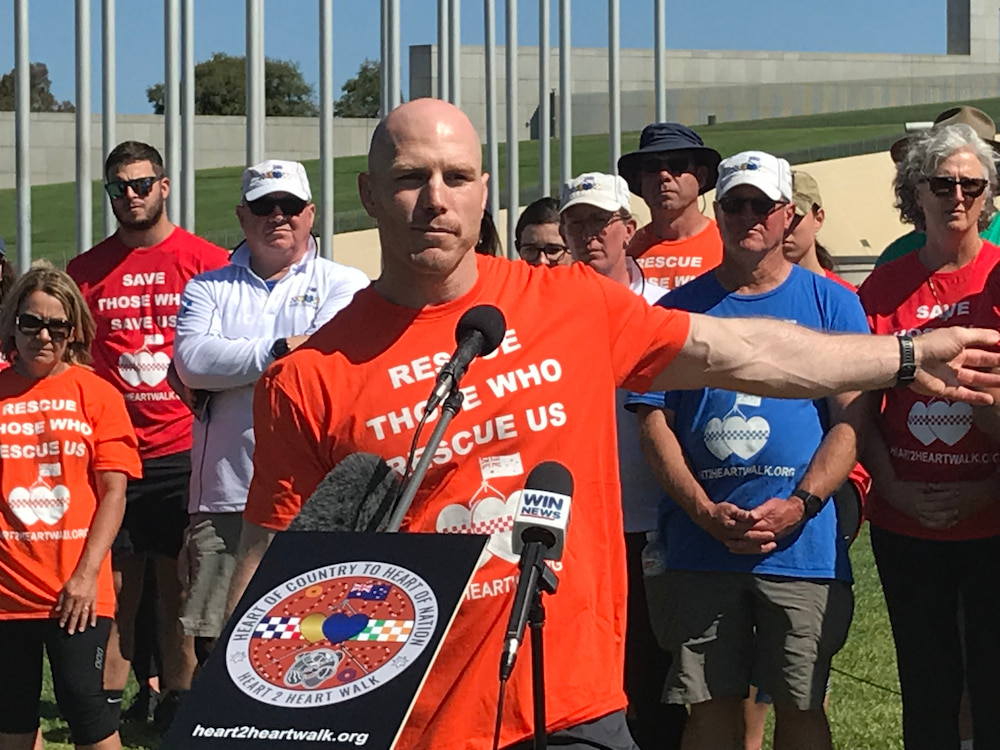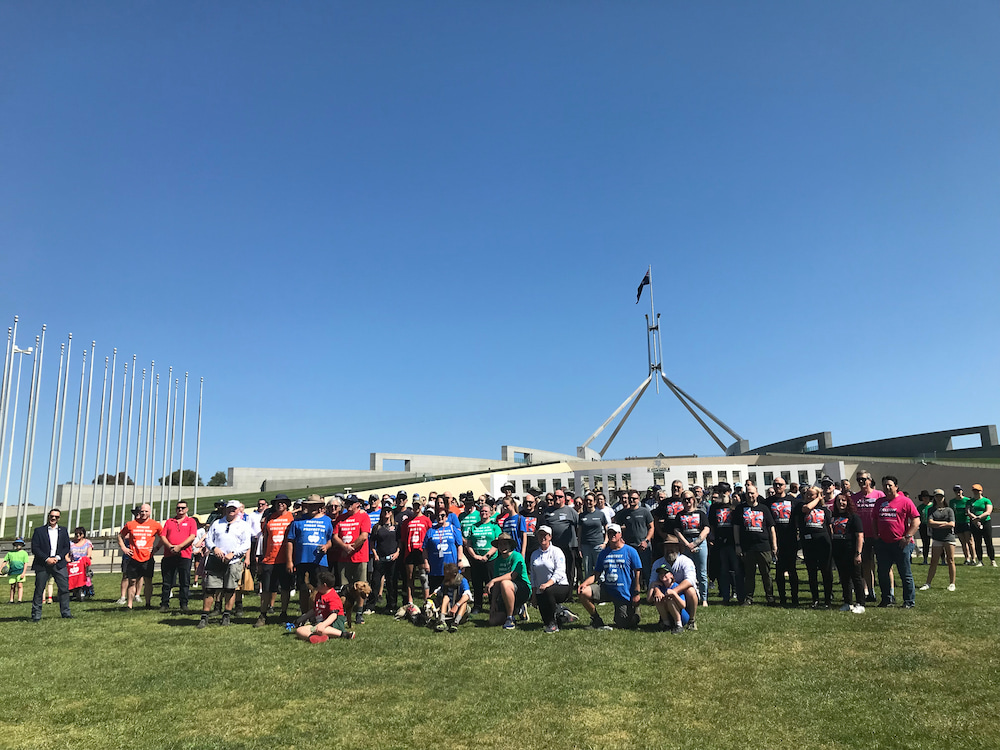Three months ago, the Heart2Heart Walk set out from central Australia to raise awareness that first responders (paramedics, police officers, fire fighters, and other emergency personnel) needed better mental health support; they were at risk of post-traumatic stress disorder (PTSD), suicide, and premature mortality.
Today, the walkers reached Parliament House, finishing a journey of nearly 2,700 km. But in that time, five police officers had taken their lives.
“It’s a national Australian crisis,” said Detective Sergeant Vince Pannell APM, an Australian Federal Police officer and one of the event’s organisers.
“Our first responders, both career and volunteer – and the vast majority of them are volunteers [400,000 volunteer first responders, 80,000 paid] – are hurting. Doing nothing is not an option. It’s costing us more, and not just in money. People’s lives, their livelihoods, and the safety of our communities are at stake.”
The 2019 Senate inquiry The people behind 000: Mental health of our first responders found that first responders were “at increased risk of serious, ongoing stress which if left untreated may develop into mental health conditions including anxiety, depression, or post-traumatic stress disorder (PTSD)”.
Although that report was delivered in February 2019, its 14 recommendations still remain inactive, Det Sgt Pannell said. The then-Liberal government noted five recommendations, supported eight in principle, and did not support one.
Senator Anne Urquhart (Labor), chief government whip in the Senate, initiated the inquiry in 2017, at the behest of Tasmanian intensive care paramedic Simone Haigh, following the suicide of a friend. (The coroner’s inquiry began in 2016, and has only just handed down its report.)
Senator Urquhart is determined her government will endorse and enact the recommendations across Australia.
“We just have to make it happen,” she said. “There are too many people who are being harmed by doing their job, people that look after us in our times of need. When we need a police officer, a paramedic, a firie, AFP personnel, anybody in emergency services, when we need them, we rely on them, and we should have [their] back and look after [them].”
Senator David Pocock (Independent) said he would push the government to implement the report’s recommendations; he found it “unacceptable” not to look after first responders.
“It shouldn’t take first responders walking 2,700 km for politicians to actually look after them. All we’re asking for here is recognition of support. Every statistic you hear on TV, there’s a family behind that. We have to do more to support our first responders.”

Senator Pocock and other independent senators have called for the government to debate a PTSD provision and three other points in a proposed industrial relations bill, splitting the bill rather than waiting for the scheduled debate over workplace law changes in February 2024.
Currently, first responders have to prove that PTSD was caused by their job; changes would make it easier for them to access compensation.
As well as raising awareness of first responders’ mental health and calling for the government to implement the recommendations, the Heart2Heart walk also wants to raise funds for academic research into impacts on first responders’ mental health and wellbeing and for education, and to establish a National First Responder Mental Health and Wellbeing Commission to achieve the recommendations.
The walk itself had been “an adventure” he would remember all his life, Paul Batista, former Queanbeyan police sergeant, said.
The walk began in July, at Lambert Centre of Australia, NT, the country’s geographical centre. More than 50 walkers took part, braving rain, hail, and storms, and temperatures from 32 degrees to -4. They missed birthdays, children’s and relatives’ operations, sports, and social events.
But it was worth it, Mr Batista said. The walkers travelled through the beautiful Flinders Ranges; Indigenous sites; the largest cattle station on earth, the size of France (la vache!); crossed rivers and lakes; and beheld the splendour of the Southern Cross.
The ACT Emergency Services Agency gave two escort vehicles, a camper trailer used for cooking, and paid personnel to walk.
The ACT Government and the Australian Federal Police Association also sponsored the walk.



